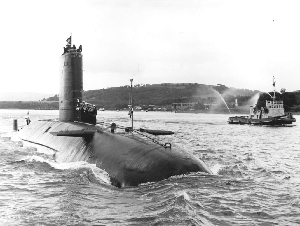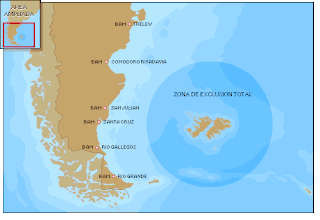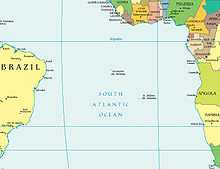
The Falklands War was a ten-week undeclared war between Argentina and the United Kingdom in 1982 over two British dependent territories in the South Atlantic: the Falkland Islands and its territorial dependency, South Georgia and the South Sandwich Islands. The conflict began on 2 April 1982, when Argentina invaded and occupied the Falkland Islands, followed by the invasion of South Georgia the next day. On 5 April, the British government dispatched a naval task force to engage the Argentine Navy and Air Force before making an amphibious assault on the islands. The conflict lasted 74 days and ended with an Argentine surrender on 14 June, returning the islands to British control. In total, 649 Argentine military personnel, 255 British military personnel, and three Falkland Islanders were killed during the hostilities.

Margaret Hilda Thatcher, Baroness Thatcher, was a British stateswoman and Conservative politician who was Prime Minister of the United Kingdom from 1979 to 1990 and Leader of the Conservative Party from 1975 to 1990. She was the longest-serving British prime minister of the 20th century and the first woman to hold the position. As prime minister, she implemented economic policies known as Thatcherism. A Soviet journalist dubbed her the "Iron Lady", a nickname that became associated with her uncompromising politics and leadership style.

ARA General Belgrano (C-4) was an Argentine Navy light cruiser in service from 1951 until 1982. Originally commissioned by the U.S. Navy as USS Phoenix, she saw action in the Pacific theatre of World War II before being sold to Argentina. The vessel was the second to have been named after the Argentine founding father Manuel Belgrano (1770–1820). The first vessel was a 7,069-ton armoured cruiser completed in 1896.

Sir Thomas Dalyell, 11th Baronet, known as Tam Dalyell, was a Scottish Labour Party politician who was a member of the House of Commons from 1962 to 2005. He represented West Lothian from 1962 to 1983, then Linlithgow from 1983 to 2005. He formulated what came to be known as the "West Lothian question", on whether non-English MPs should be able to vote upon English-only matters after political devolution. He was also known for his anti-war, anti-imperialist views, opposing the Falklands War, the Gulf War, the War in Afghanistan and the Iraq War.

Nicholas Ridley, Baron Ridley of Liddesdale,, was a British Conservative Party politician and government minister.

HMS Conqueror was a British Churchill-class nuclear-powered fleet submarine which served in the Royal Navy from 1971 to 1990. She was the third submarine of her class, following the earlier Churchill and Courageous, all designed to face the Soviet threat at sea. She was built by Cammell Laird at Birkenhead.

Carol Jane Thatcher is an English journalist, author and media personality. She is the daughter of Margaret Thatcher, the British prime minister from 1979 to 1990, and businessman Denis Thatcher.
Clive Sheridan Ponting was a senior British civil servant and historian. In 1984, he leaked classified documents about the sinking of the ARA General Belgrano in the Falklands War in 1982, which showed that government statements about the sinking were untrue. He was prosecuted under the Official Secrets Act, but argued that his actions were in the public interest, and was acquitted. At the time of his resignation from the civil service in 1985, he was a Grade 5, earning £23,000 per year.

Nationwide was a BBC current affairs television programme which ran from 9 September 1969 until 5 August 1983. Originally broadcast on BBC 1 from Tuesday to Thursday, and then each weekday from 1972, it followed the early evening news, and included the regional opt-out news programmes.

The Falklands Play is a dramatic account of the political events leading up to, and including, the 1982 Falklands War. The play was written by Ian Curteis, an experienced writer who had started his television career in drama, but had increasingly come to specialise in dramatic reconstructions of history. It was originally commissioned by the BBC in 1983, for production and broadcast in 1986, but was subsequently shelved by Controller of BBC One Michael Grade due to its pro-Margaret Thatcher stance and alleged jingoistic tone. This prompted a press furore over media bias and censorship. The play was not staged until 2002, when it was broadcast in separate adaptations on BBC Television and Radio. It was aired again on BBC4, 1 December 2020, over 18 years after it was last transmitted.
The cultural impact of the Falklands War spanned several media in both Britain and Argentina. A number of films and television productions emerged from the conflict. The first Argentine film about the war was Los chicos de la guerra in 1984. The BBC drama Tumbledown (1988) tells the story of a British officer paralysed from a bullet wound. The computer game Harrier Attack (1983) and the naval strategy game Strike Fleet (1987) are two examples of Falklands-related games. A number of fictional works were set during the Falklands War, including in Stephen King's novella The Langoliers (1990), in which the character Nick Hopewell is a Falklands veteran. The war provided a wealth of material for non-fiction writers; in the United Kingdom (UK) an important account became Max Hastings and Simon Jenkins' The Battle for the Falklands.

Margaret Thatcher's term as the Prime Minister of the United Kingdom began on 4 May 1979 when she accepted an invitation of Queen Elizabeth II to form a government, and ended on 28 November 1990 upon her resignation. She was elected to the position in 1979, having led the Conservative Party since 1975, and won landslide re-elections for the Conservatives in 1983 and 1987. She gained intense media attention as Britain's first female prime minister, and was the longest-serving British prime minister of the 20th century. Her premiership ended when she withdrew from the 1990 Conservative leadership election. While serving as prime minister, Thatcher also served as the First Lord of the Treasury, the Minister for the Civil Service and the Leader of the Conservative Party.

USS Luiseno (ATF-156) was an Abnaki-class fleet ocean tug built for the United States Navy during World War II. Named after the Luiseño peoples, she was the only U.S. Naval vessel to bear the name.

The Total Exclusion Zone (TEZ) was an area declared by the United Kingdom on 30 April 1982 covering a circle of radius 200 nautical miles from the centre of the Falkland Islands. During the Falklands War any sea vessel or aircraft from any country entering the zone was liable to be fired upon without further warning.

Sink the Belgrano! is a 1986 satirical play in verse written by English playwright Steven Berkoff. It premiered at the Half Moon Theatre on 2 September 1986.

The Iron Lady is a 2011 biographical drama film based on the life and career of Margaret Thatcher, a British politician who was the longest-serving Prime Minister of the United Kingdom of the 20th century and the first woman to hold the office. The film was directed by Phyllida Lloyd and written by Abi Morgan. Thatcher is portrayed primarily by Meryl Streep, and, in her formative and early political years, by Alexandra Roach. Thatcher's husband, Denis Thatcher, is portrayed by Jim Broadbent and by Harry Lloyd as the younger Denis. Thatcher's longest-serving cabinet member and eventual deputy, Geoffrey Howe, is portrayed by Anthony Head.

On 8 April 2013, former British prime minister Margaret Thatcher, Baroness Thatcher, died of a stroke at the Ritz Hotel, London, at the age of 87. On 17 April, she was honoured with a ceremonial funeral. Due to polarised opinions about her achievements and legacy, the reaction to her death was mixed across the UK, including contrasting praise, criticism, and celebrations of her life as well as celebrations of her death.

"Rejoice" was a remark made by British prime minister Margaret Thatcher in Downing Street on 25 April 1982 following a statement read by Secretary of State for Defence John Nott on the successful recapture of South Georgia from Argentine forces, one of the first acts of the Falklands War. A journalist asked, "What happens next, Mr Nott?" at which point Thatcher intervened to state, "just rejoice at that news and congratulate our forces and the Marines", on which she and Nott headed back towards 10 Downing Street. As she reached the doorstep, Thatcher reiterated "rejoice" before entering the building. The words were controversial, with Thatcher's critics regarding them as jingoistic and triumphal, particularly regarding a military operation in which lives may have been lost. Thatcher's supporters regarded the words as a statement of support for British forces and a mark of the relief felt by Thatcher after a successful military operation. The phrase, often paraphrased as "rejoice, rejoice", has been used since in speech and art. Former prime minister Edward Heath uttered the words on Thatcher's resignation in 1990. Labour prime minister Tony Blair received dissent from his backbenchers in 2004 when, after the Iraq War, he asked the House of Commons "whatever mistakes have been made, rejoice that Iraq can have such a future".

At 10:15 pm (BST) on the night of 14 June 1982, British prime minister Margaret Thatcher announced to the House of Commons that negotiations had begun for the surrender of the Argentine invasion force in the Falkland Islands, ending the Falklands War. Her statement noted that "they are reported to be flying white flags over Port Stanley", the capital of the Falklands. This was based on an erroneous report from a front-line unit; in fact, no white flags are known to have been flown, though Argentine resistance ended, and a ceasefire was in place. The surrender was finalised by 1:30 am BST on 15 June. Thatcher's statement was welcomed from all sides in the House, and she left to join celebrating crowds in Downing Street. She later described the statement as "perhaps the proudest moment of my life".
The British government did not seriously consider using its nuclear weapons during the 1982 Falklands War. Britain had ratified the Treaty of Tlatelolco which established a nuclear-weapon-free zone across Latin America in 1969 and made a commitment in the United Nations during 1978 to not use these weapons against non-nuclear powers such as Argentina. The British War Cabinet never contemplated the use of nuclear weapons but Prime Minister Margaret Thatcher may have done so separately when considering options to respond to a potential serious defeat.




















